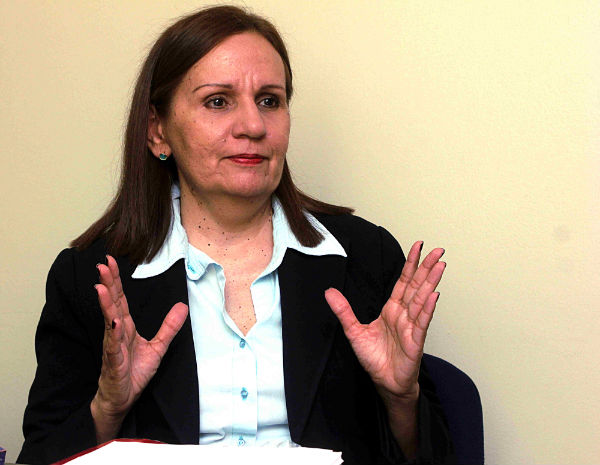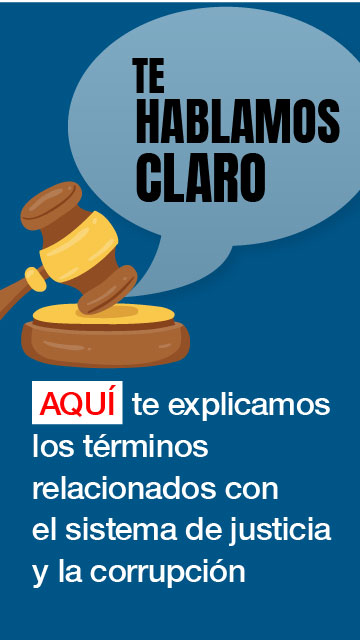By decision of the Constitutional Chamber of the Supreme Court of Justice (TSJ), the Comptroller General of the Republic holds a double-edged sword. On the one hand, the Comptroller can impose fines and, on the other, has the power to politically disqualify the investigated party in the same case. That is, all in one fell swoop.
Xiomara Lucena appeared before the Supreme Court seeking justice and left disqualified. The leader of the United Socialist Party of Venezuela (PSUV) requested the country’s highest court the annulment of Article 105 of the Organic Law of the Comptroller General of the Republic and the National Fiscal Control System, relating to the sanctions arising from the declaration of administrative liability by the Comptroller.
Lucena tried to show the judges that she was being punished twice for one fact, which–she argued—violated her right to due process and defence. However, in August 2008, the Constitutional Court, on presentation by Justice Arcadio Delgado Rosales, rejected her reasoning and upheld the validity of this legal provision. Jesús Eduardo Cabrera Romero, Marcos Tulio Dugarte and Carmen Zuleta de Merchán endorsed Delgado Rosales’s thesis. Justice Pedro Rondón Haaz abstained.
Rondón Haaz objected his colleagues’ reasoning, saying that the rule in fact violated the right to defence and due process. The judge explained that the political disqualification would entail a “new proceeding”, other than the one which eventually end up with the imposition of a fine, so the affected party would have an opportunity to respond in his or her favour. He also highlighted that the exercise of political rights can only be suspended by a “final judgment.”
The Comptroller General of the Republic sanctioned Lucena for an act committed while she was councilwoman in the Metropolitan Council of Caracas, during the administration of former mayor Antonio Ledezma, when it was determined that that entity violated the Organic Law of Municipalities, by approving funds to the Institute of Councilmen’s Social Welfare of the Libertador Municipality (Inpreconcejal) in order to create a pension system.
Two years before the Supreme Court issued the ruling, the then Education Minister Aristóbulo Istúriz described the political disqualification of Lucena as “absurd,” who at the time worked under him as Director of Educational Communities. “I think it is a vulgar manipulation,” said Istúriz.
More than “absurd,” the article endorsed by the Supreme Court is absolutely unfair, as it allows the Comptroller General to impose sanction without there being any possibility for the accused to exercise their right to defence, as established by the Constitution. In addition, it grants a dangerous discretionary power to the Comptroller General.
Extract of the judgment
With regard to the impossibility of implementing additional sanctions (…); it should be noted that (…) the Comptroller General of the Republic may impose administrative sanctions (…) the Court considers (…) in accordance with the “American Convention on Human Rights”, restricting rights and freedoms provided it is by law, for the benefit of the general interest, security of all and the just demands of the common good. (…) the restriction of human rights can be done according to the laws enacted for reasons of general interest, for the safety of other members of society and by the just demands of the common good (…)”.








